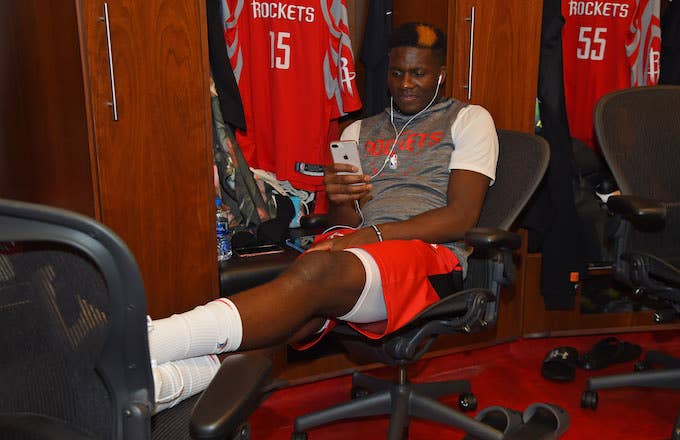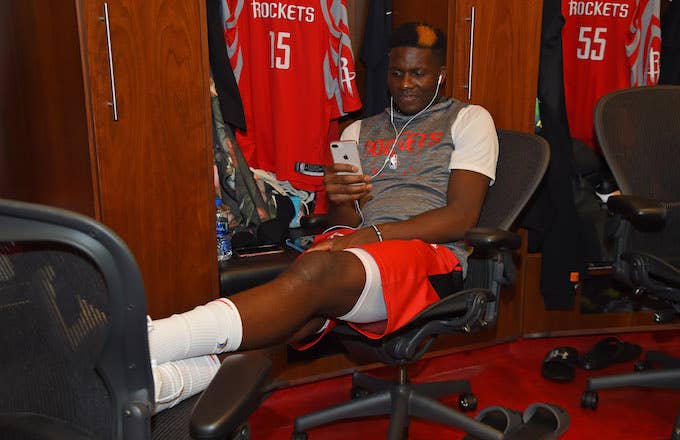
The last few years ESPN has tried to predict something they call "schedule losses" in the NBA. Basically, games that can be earmarked as a loss before the season even tips because of schedule-induced lethargy. Now, the NBA's swan dive into data continues, with a new study published on Monday revealing that a player's late-night Twitter habits negatively affect their performance the next day.
Using research from 2017 on players who posted late-night tweets, researchers examined game statistics, via Yahoo Sports, for 112 verified Twitter-using players, with a total of 37,073 tweets between 2009 and 2016. The found a player's shooting dropped 1.7 percentage points when he tweeted the night before during typical sleeping hours—11 p.m. to 7 a.m.
The same late-night tweeting showed players scored 1.1 fewer points and 0.5 fewer rebounds during the next day's contest, but that can be attributed to less playing time, which was also a result. Late-night tweeters also had fewer fouls and turnovers, but that again can be connected to the drop in playing time. All of the effects were magnified when teams traveled.
The senior author of the study, Stony Brook University professor Lauren Hale, PhD, says the results didn't affect habitual late-night tweeters as much as the sort who did so much less often. "The reason for this finding may be that infrequent late-night tweeters could be morning types, and therefore staying up late to tweet is unusual for them and takes a higher cognitive and physical toll," she says.
Jason J. Jones, PhD, lead author and Assistant Professor of Sociology at Stony Brook, makes sure to note the epidemiological correlation with sleep and sleep deprivation more so than anything intrinsic to Twitter as a social media service distinguishable from Instagram or some other online medium. "While this study is relevant to coaches everywhere, this is not a study about either Twitter or basketball," he says. "It’s a study about the importance of sleep for optimal daytime functioning." Hale added, "We hope that this study will encourage people to discuss the role of screen-based media in keeping us awake at night."
One issue unexplored in the study is the odd hours NBA players keep as they seek to reach peak performance later at night than most people do at their day jobs, with most games tipping between 7 p.m. and 8 p.m. local time, and concluding much closer to that 11 p.m. cut-off than the normal working person. However, forgetting the minute-dependent numbers like points, rebounds, blocks or fouls per game, the study shows the drop in shooting percentage becomes more acute when players' tweeted between 2 a.m. and 6 a.m., dropping 3.6 percent overall.

